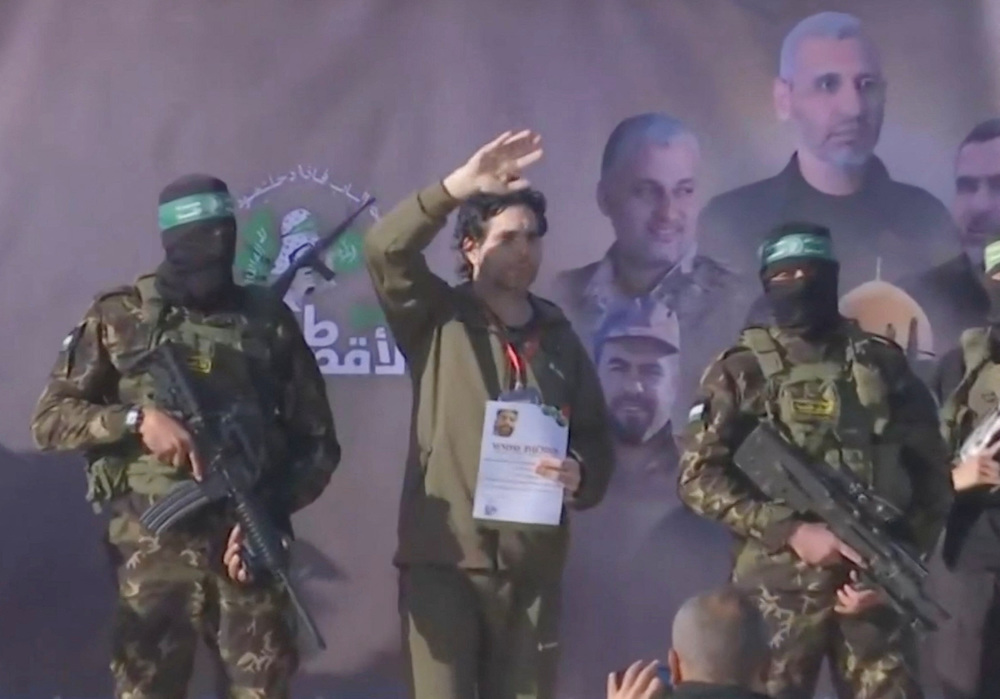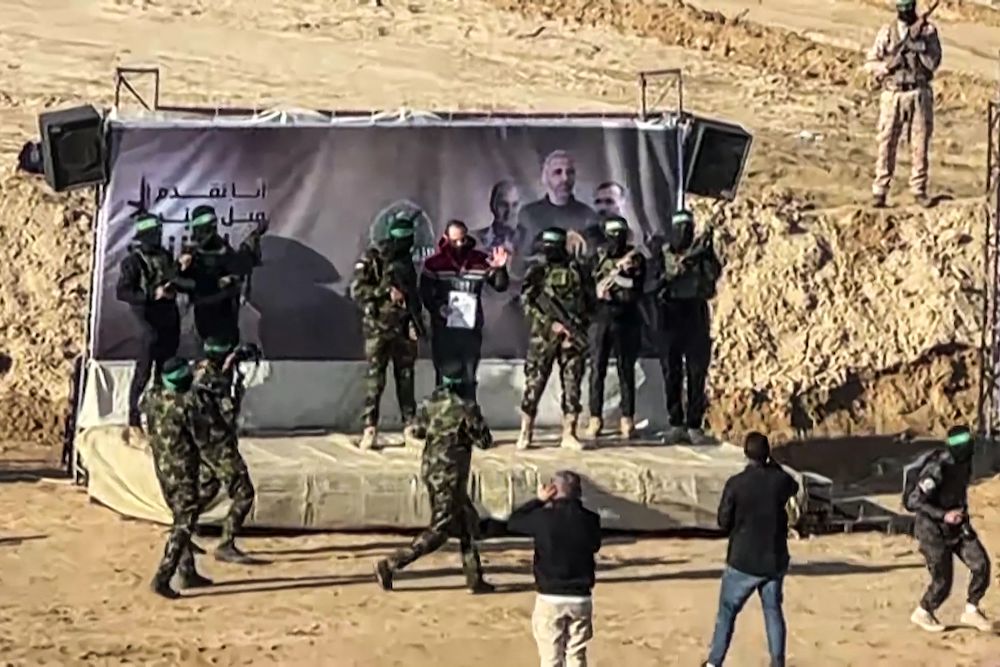BEIRUT: The US is trying to avert a greater war between Israel and Lebanon’s Hezbollah movement, American envoy Amos Hochstein said on Tuesday, following an escalation in cross-border fire between the foes along Lebanon’s southern frontier.
Hochstein described the situation on the border between Lebanon and Israel as “very critical and very dangerous.”
Hochstein, who arrived in Beirut from Tel Aviv, said during a series of meetings with Lebanese officials that “further escalation between Israel and Lebanon must be avoided so we won’t reach an open war. We seek to stop the escalation in order to avoid a major war.”
He said a ceasefire in Gaza might end the war in southern Lebanon and allow displaced people to return to their homes, adding that “the conflict along both sides of the Blue Line has been going on for too long and ending it is in everyone’s interest.”
The situation on the southern front has escalated in the past couple of days with Hezbollah’s recent unprecedented attacks.
A Hezbollah reconnaissance Hudhud-1 drone released on Tuesday detailed footage of the port of Haifa Bay area and the Carmel area specifically, as well as a military manufacturing company and other military bases in Nahariya, Safad and Kiryat Shmona.
Hezbollah said the drone was equipped with the latest photography technology “to identify its targets and the enemy’s gatherings and equipment.”
It added that “the drone is characterized by its small size and radar, which makes it difficult to detect, follow and down with air defense missiles.
“It is also known for its small amount of thermal radiation, reducing its likelihood of being hit by infrared missiles. It is also characterized by its low acoustic fingerprint, making it hard to identify in a battle atmosphere.”
Hochstein met Lebanese army chief Joseph Aoun in the presence of the US Ambassador to Lebanon Lisa Johnson.
The discussions revolved around the general situation in Lebanon and the region, as well as developments on the southern border.
The US is highly concerned that hostilities between Hezbollah and the Israeli army could escalate into an open war.
Aoun visited the Pentagon for the first time last week, where the escalating tensions with Israel were discussed.
After an hour-long meeting with Parliament Speaker Nabih Berri, Hochstein told reporters that his visit “comes under difficult circumstances, and this is why he was dispatched by President Joe Biden to Lebanon.”
He said he had a positive meeting with Berri, where they discussed the proposed deal in relation to Gaza, “which gives an opportunity to end the conflict on both sides of the Blue Line.”
Hochstein added that “the deal proposed by President Biden on May 31, 2024, which includes the release of the hostages and a full and complete ceasefire leading to the end of the war in Gaza, and which was approved by the Israeli side, Qatar, Egypt, the G7 and the UN Security Council, could end the war in Gaza and plan the withdrawal of the Israeli forces. If this is what Hamas wants, it should accept the deal.”
He noted: “A ceasefire in Gaza and/or an alternative diplomatic solution could also bring the conflict across the Blue Line to an end, creating conditions for displaced Lebanese civilians to go home in the south, and for Israeli civilians to go home in their north. The conflict along the Blue Line between Israel and Hezbollah has gone on for long enough. Innocent people are dying. Property is damaged. Families are shattered, and the Lebanese economy continues to decline. The country is suffering for no good reason. It’s in everyone’s interest to resolve it quickly and diplomatically. That is both achievable. And it is urgent.”
Prime Minister Najib Mikati told Hochstein that “Lebanon does not seek escalation, and what is required is to stop the ongoing Israeli aggression against Lebanon and return to calm and stability on the southern border.”
He said: “We continue to strive to stop the escalation, establish security and stability, and stop the ongoing violations of Lebanese sovereignty and the systematic killing and destruction committed by Israel. However, the continuous Israeli threats to Lebanon will not prevent us from continuing our efforts to establish calm, which is a priority for us and all of Lebanon’s friends.”
Hochstein said: “We are going through dangerous times and critical moments, and we are working together to find ways to prevent further escalation.”
In Tel Aviv, the head of the National Unity Party, Benny Gantz, told Hochstein: “Time is running out for an internationally mediated arrangement on the northern border with Lebanon.”
Gantz wrote on social media that during his meeting with Hochstein, “I emphasized my commitment to removing the threat Hezbollah to the citizens of northern Israel, regardless of developments on the war in Gaza, and will support any responsible and effective political or military decision on the matter from outside the government.”
Israeli Channel 12 reported: “Israel informed Hochstein that operations in Rafah, Gaza Strip, were nearing completion and the end of operations in Rafah would affect the region and the Lebanon front.”
According to the Israeli army, Hezbollah has fired more than 5,000 rockets, anti-tank shells, and explosive drones into northern Israel since Oct. 8.
Hezbollah halted its hostile operations for 48 hours, despite Israel not stopping its targeting of party members. The latest of these attacks was on Tuesday afternoon when a combat drone targeted a man driving a car to the town of Borgholiyeh, north of the city of Tyre.
Another drone targeted a Hezbollah member driving a vehicle on Monday on the road linking the towns of Selaa and Chehabiyeh in the Tyre area, leading to his death.
Israeli warplanes also conducted violent raids on the town of Chaqra, which hosts displaced people from frontline villages.
Hezbollah announced on Tuesday that it targeted “a Merkava tank inside the Hadab Yarin site with an assault drone, hitting it directly.”






























